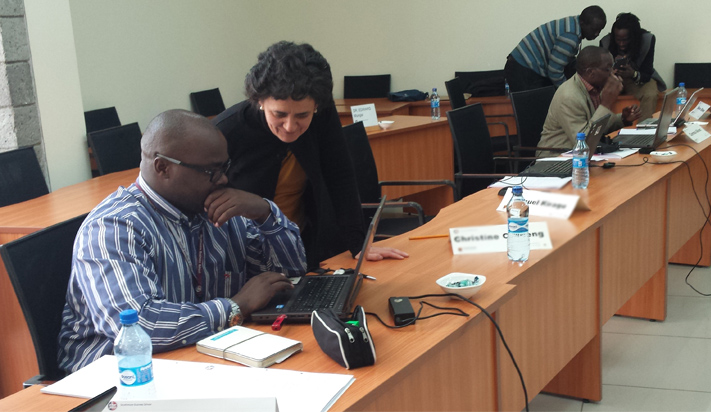Last week I got my “African shot”: I visited Strathmore Business School (SBS) in Nairobi where I led a Pre-Doctoral Workshop. Upon return, I participated in IESE’s Symposium on Business Ethics. The two activities connected well: many Workshop participants were interested in research topics related to societal problems, and the role that business leaders can play to solve them. In turn, the discussions at the Symposium revolved around issues such as managing with purpose, conscious leadership, etc.

The Pre-Doctoral Workshop is a new program targeted at people who are considering applying for a Ph.D. program. It gives an overview of what doctoral research is about, helping make a more informed decision (btw, for those interested, there will be a new edition of the Workshop on August 27 to September 2). Participants engaged in discussions of their research interests. I found these of great interest. The starting point was a problem they face. To give you some examples:
- To what extent does service outsourcing contribute creating economic disparity? Knowing this may provide guidance for decision-making to companies worried about the working conditions of low-skilled workers.
- Which are scalable business models in the construction industry? An answer to this question may help address the problem of providing affordable, decent housing to people who live in semi-slum conditions.
These type of problems suggest to me that there is a great concern to contribute solving important societal problems.* With these types of inputs in my mind, I landed in the Business Ethics Symposium. One idea came up once and again: a business with a purpose that goes beyond creating shareholder value has the potential to engage people. If people are engaged, they perform better in their job, and from there you’ll get profits. Purpose and profit can go together.
I saw that Workshop and Symposium participants shared a similar concern: contribute solving societal problems. This was an important ingredient to my African shot of this time.
* To my academic colleagues: don’t worry, I insisted a lot that good research may require description but it goes beyond that: good research provides explanations – and this is what theory is about, at the end of the day. Also, good research is not intended to solve a particular problem of a particular company – rather, its findings are generalizable to theory or to the population, within certain boundary conditions. But there’s no intrinsic contradiction between rigor and relevance.


This is an impressive mentoring and capacity-building approach! Thanks, Africa …
I have to say that the workshop was a great experience for me. I’m thinking of reverse innovation: I’m going to suggest that we offer this type of program at IESE. So, who’s building capacity? Both sides, indeed!
I’ve learned the hard way that the Pre-Doctoral Workshop is extremely useful to PhD students. During my PhD program, I’d been offered a “Pre-Doctoral Workshop” in the second year of my PhD. The workshop contents was the same of the Pre-doctoral workshop, but under a different course title. I was wondering why my university offered it too late?
I will not name my university here. but my university belong to the top universities in UK and I still love it and respect it.
Thank you for sharing this good article!
Thank you for your comment, Khaled. I found the Workshop to be most helpful to prospective students. It’s no substitute, though, for a full course on Research Methods and the like. But it gives a head start, that’s for sure!